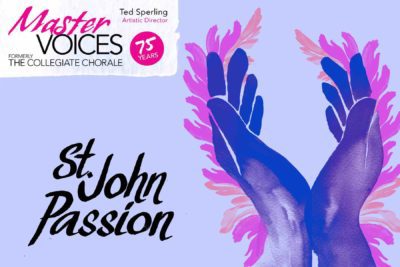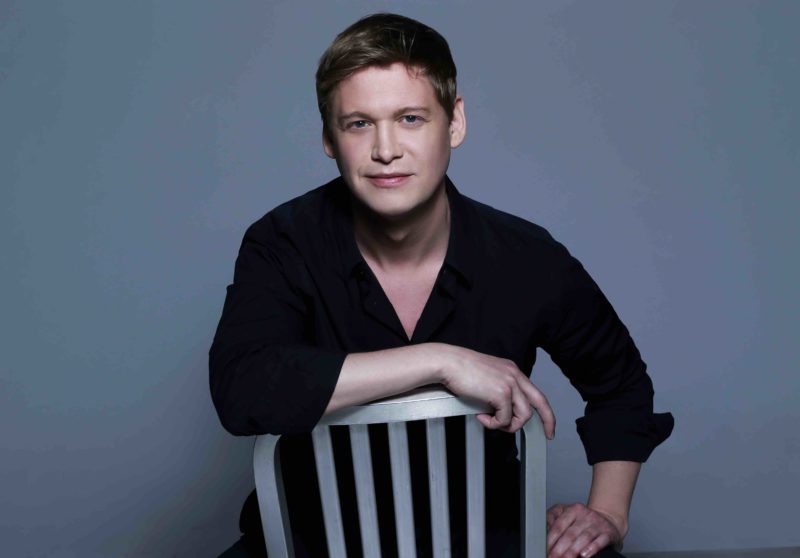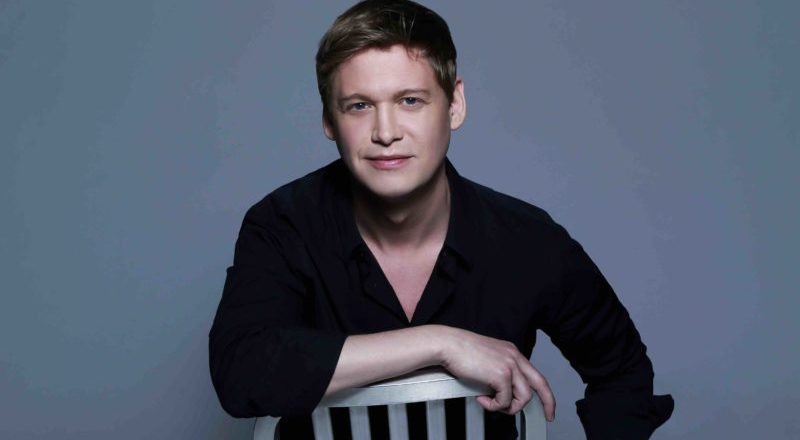INTERVIEW: Bach’s ‘St. John Passion’ receives new English translation for Carnegie Hall concert

Michael Slattery has a rare role to play Thursday, Feb. 9 at Carnegie Hall. As he sings the role of the Evangelist for Johann Sebastian Bach’s St. John Passion with MasterVoices, he’ll also recognize the words of every single aria and chorale. That’s because he translated them from the original German.
Slattery, an in-demand singer, was tasked with the difficult translation by artistic director Ted Sperling. It was a challenge, for sure, but this singer has been meeting and exceeding expectations his entire career.
“Well, they’re going to be hearing something that’s brand new, something that has not yet existed, which is exciting,” Slattery said recently in a phone interview. “That is an English translation of the St. John Passion that has a simple and direct narrative, and which is written with language that we hope will be relevant to today’s audiences.”
The translation process, and how Slattery was given the job, occurred organically, the singer said. Sperling was planning the concert at Carnegie Hall’s Stern Auditorium / Perelman Stage to celebrate the 75th anniversary of MasterVoices, formerly known as The Collegiate Chorale. Sperling first asked Slattery to sing the part of the Evangelist, a role the performer has brought to life several times.
“I’d only ever done it in German, and he mentioned that he would like to do it in an English translation because the founder of Collegiate Chorale, Robert Shaw, had written his own English translation back in the ‘50s and continued revising it throughout his lifetime,” Slattery said. “[Shaw’s] belief was that the audience should be able to follow every word, and so my first question to Ted was which version are we going to be using. Whose translation are we going to be using because in performing the role of the Evangelist you have the majority of the narration of the story, and I just had a feeling that it would be important to see which version we were using and what it was like. So I sort of volunteered to research what was available, and we looked at all the English translations that had been done to date.”
The team came to the conclusion that the available translations had particular issues, so Slattery offered himself as a means of creating a new German-to-English translation. He began with the opening and closing parts of the piece, and Sperling approved. The singer then moved to two arias and received glowing marks for those.
“The last piece of the puzzle was attempting to translate a chorale,” he said. “The arias and the chorales were much more challenging because of the rhyme scheme in the poetry, but I was able to sort of solve that puzzle in a way that we were both happy with. … When you compare it to what else is out there and what’s been done before, I don’t think that there’s any question that what we created is something that is going to resonate with people.”

The actual singing of the Evangelist role can be its own challenge. In particular, Slattery will attempt to find ways to internalize the narration and present the words with a strong point of view full of emotional color. Vocally, he has been focused on simplicity and clarity, so audience members, even novices to the material, understand the words.
“We’ve been rehearsing the choral materials with the chorus since October, which brought its own set of challenges for me because you’re not only creating a new translation,” he said. “You’re also sort of instantly becoming a publishing company because you need to make 160 copies of each of these movements, so that the people in the chorus have something to read from. The rehearsals with the orchestra are beginning this week, but the orchestra is a period orchestra. And I believe it’s a piece that they’ve all performed before and are familiar with, so I think that addition of having them performing it with us is going to immediately elevate the level of everything.”
Those 160 copies are not an exaggeration. Bach’s famous piece calls for approximately 150 chorus singers, and MasterVoices also encourages a communal experience at Carnegie Hall. That means the audience members are allowed to sing the chorale sections.
“I don’t know if it’s nervousness or anticipation as much as it is excitement,” he said. “There’s a real thrill to it. So much thought has gone into each phrase of music. I labored sometimes days on a single phrase trying to solve the puzzle of what is the clearest, most succinct [manner] of saying this that honors the music, that humanizes the historical details of the events in a way that engages an audience and provokes them and makes them think about the material, so I would call it excitement more than nervousness. We have come so far, and we’re beyond the stage where we’re still changing things. So that’s a bit of a relief only because we have now shifted over to our roles as performers where we’re no longer suggesting another possible interpretation of a certain moment. So it’s extremely rewarding work, and these rehearsals are going to be, I think, really fun.”
Slattery had plenty of time to prepare for his dual role in St. John Passion. That was not the case for arguably the most memorable part of his career. That came in November 2013 when he received an unbelievable phone call from the New York Philharmonic asking him to perform Edward Benjamin Britten’s Serenade for Tenor, Horn, and Strings. Here’s how he relayed the story:
“That was a defining moment for me as an artist. I think in the back of my mind performing as a soloist with the New York Philharmonic had always been a dream, and the manner in which it was realized gave it an added epic quality. I received a phone call at 10 p.m. the night before the concert, asking if I was available and asking if I knew the piece. I did know the piece, and I had performed it twice before. But my last performance of it, I think, had been four years prior to that. … It’s very complex poetry and complex music, so it was one of those moments where I think there was a big part of me that wanted to say no, it’s too much. I ideally would want more time for this, but at the same time, I was empathetic to the situation they were in. And I knew on some level that I would be able to deliver for them, and it was an incredibly restless night. I don’t know that I officially slept, but I had recently read something about even if you don’t fall asleep, if you close your eyes and lie down, your body is still getting the benefits of rest. So with phrases of music turning through my head all night, I don’t know if I slept, and I was singing with the New York Philharmonic the following morning for an open dress rehearsal with [an] audience followed by the performance that evening. So by the time I was walking out on stage for the performance, I didn’t even have the energy to be resisting anything or being nervous about anything. It was just this incredible calm came over me, and it was almost like it was just the movements were just moving through me. I was just the vessel.”
Those performances with the New York Philharmonic were one of many highlights in Slattery’s career. He returned to the respected institution in 2014-15 as tenor soloist in George Frideric Handel’s Messiah. He has also sung with the Philadelphia Orchestra, Seattle Symphony, St. Paul Chamber and Philharmonia Baroque Orchestras, and symphonies around the world.
Now he turns his sights to singing his own translation of Bach’s famous St. John Passion. “This project in particular has been a labor of love coming from a pure desire to honor and elevate material in a way that the material is certainly worthy of,” he said. “I haven’t done a full accounting of how many hours have gone into this, but it’s been a happy obsession over the last six months or so.”
By John Soltes / Publisher / John@HollywoodSoapbox.com
MasterVoices will present Michael Slattery’s translation of Johann Sebastian Bach’s St. John Passion Thursday, Feb. 9 at Carnegie Hall. Performers include Slattery, Jesse Blumberg, Adam Lau, Jennifer Zetlan, Tamara Mumford, Ben Bliss and Daniel Okulitch. Ted Sperling, artistic director of MasterVoices, will conduct. Click here for more information and tickets.

